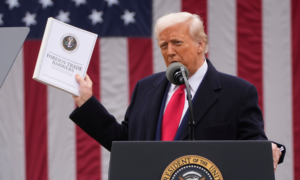Stop tinkering with global balanced funds
Balanced funds aren't for everybody, but they work extremely well for investors looking for safety, income and modest capital appreciation. Above all else, they're simple. Why bother messing with a good thing?
 Mutual fund investors seeking a simple solution for conservative, long-term growth need look no further than a single low-cost global balanced fund. But problematically many retail investors or their advisers are unnecessarily, and sometimes erroneously, messing about with these elegant all-in-one funds.
Dan Hallett, director of asset management for HighView Financial Group, brought up this concern during a recent conversation we had on the topic of smart investing. While the appeal of balanced funds is well known to many investors, Hallett says most people are using them in ways that completely defy their intended use. “Typically, the way I’ve seen balanced funds used is that they’re one of six to eight funds in a portfolio, and not the one fund,” he says. “It doesn’t matter if you have $25,000 or $250,000. One good, reasonably priced balanced fund can take you far dollar-wise. You could do it well into a six-figure portfolio.”
Mutual fund investors seeking a simple solution for conservative, long-term growth need look no further than a single low-cost global balanced fund. But problematically many retail investors or their advisers are unnecessarily, and sometimes erroneously, messing about with these elegant all-in-one funds.
Dan Hallett, director of asset management for HighView Financial Group, brought up this concern during a recent conversation we had on the topic of smart investing. While the appeal of balanced funds is well known to many investors, Hallett says most people are using them in ways that completely defy their intended use. “Typically, the way I’ve seen balanced funds used is that they’re one of six to eight funds in a portfolio, and not the one fund,” he says. “It doesn’t matter if you have $25,000 or $250,000. One good, reasonably priced balanced fund can take you far dollar-wise. You could do it well into a six-figure portfolio.”











